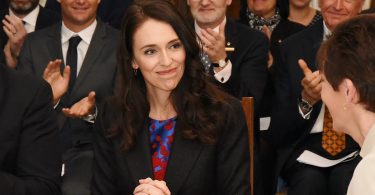Hungary’s government has received permission from the Hungarian parliament to deploy their army to help control the growing migrant crisis.
The army have been given authorisation to use a range of non-lethal force including rubber bullets, tear gas, and pyrotechnical devices.
Borders
Hungarian Prime Minister, Viktor Orban, has said the influx of migrants was now so great that the police were no longer able to control its borders with Serbia and Croatia, the outer borders of the EU passport free Schengen zone, without military support.
Land locked Hungary, with a population of 10 million, has registered 220,000 asylum seekers this year so far.
The move is likely to further inflame tensions between Croatia and Hungary who have come to blows over Hungary’s handling of the crisis.
Hungary’s border fence, and increased patrols of the area, saw a huge drop in migrants attempting to cross the border, moving the problem onto Croatia.
Orban has insisted that Hungary will continue to act to protect its borders in whatever way it sees fit until the EU is able to find a workable solution to the current crisis.
He said, “Europe is rich but weak. That is the most dangerous combination possible. The result is catastrophic. Because Europe cannot defend its external borders, internal borders are shut again.”
Brutal threat
He said of the current extraordinary influx of migrants, “Until the EU states act as one, member states will be forced to go out of their way to fend off this brutal threat.”
This comes in the face of strong opposition from some countries to the proposed obligatory quotas for migrants, with ministers from Poland, Hungary, the Czech Republic and Slovakia currently meeting in Prague, the outcome of which is antipated to cause consternation to nations in favour of the quotas.
On Tuesday EU ministers will meet in Brussels to try to agree how many migrants each country will take, with an extraordinary summit taking place on Wednesday amongst European leaders, whose opinions on migration are heavily divided.
French President, Francois Hollande, said that no-one in the EU can be exempt from taking in legitimate asylum seekers, while European Council President and Prime Minister of Poland, Donald Tusk, has said the EU should focus on finding Syrian refugees “a better life closer to home”.








